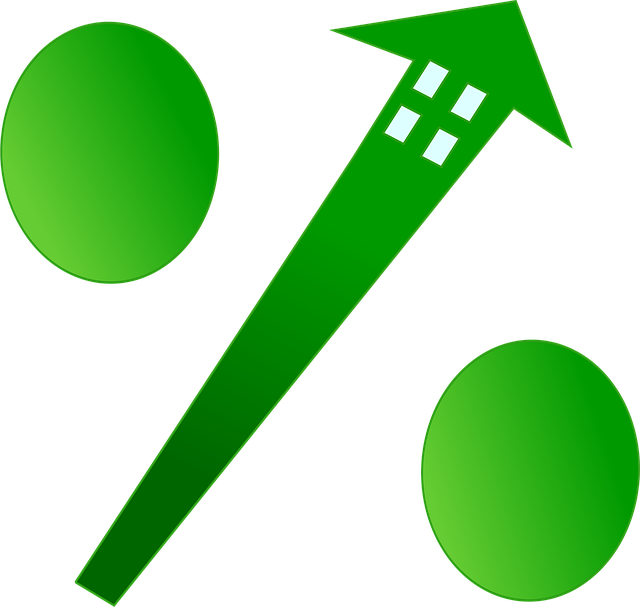Debt consolidation loans merge multiple debts for lower rates, but thorough research is crucial to avoid high charges. Compare lenders using online platforms, scrutinize fee breakdowns, and consider lender reputation. Check credit scores before applying, focusing on when debt consolidation aligns with financial goals. Evaluate loan terms, including origination fees and repayment periods, for best fixed-rate offers. Understand secured vs. unsecured loans based on collateral to reduce rates effectively. Actively research and compare multiple lenders to secure the best debt consolidation interest rates.
Looking to lock in the lowest debt consolidation rate? It’s crucial to understand the intricacies of debt consolidation interest rates. This article guides you through essential steps, such as comparing multiple lenders and offers, evaluating loan terms, considering secured vs unsecured loans, and shopping around for the best market rates. By following these top tips, you can secure a favorable debt consolidation interest rate that suits your financial needs.
- Understand Debt Consolidation Interest Rates
- Compare Multiple Lenders and Offers
- Check Credit Score Impact and Improvements
- Evaluate Loan Terms and Conditions
- Consider Secured vs Unsecured Loans
- Shop Around for The Best Market Rates
Understand Debt Consolidation Interest Rates

Debt consolidation loans can help simplify your repayments by combining multiple debts into one with a single interest rate. However, understanding debt consolidation interest rates is crucial before making any decisions. These rates are the cost of borrowing money to pay off your existing debts, expressed as a percentage of the loan amount. Lower rates mean less financial burden over time.
When choosing a debt consolidation loan with best rates, compare offers from different lenders carefully. Consider factors like interest rate, loan term, and any fees associated with the loan. Remember, dropping debt consolidation rates can be achieved by maintaining good credit scores, negotiating with lenders, or exploring secured consolidation loans, which often come with lower rates but require collateral. Protecting yourself from high rates on consolidation involves doing thorough research, comparing options, and ensuring you understand all terms before accepting any offer.
Compare Multiple Lenders and Offers

When looking to lock in the lowest debt consolidation rate, comparing multiple lenders and offers is non-negotiable. This strategic approach allows you to assess the market and secure the best terms tailored to your financial situation. Start by researching online platforms that connect borrowers with lenders, enabling side-by-side comparisons of interest rates, fees, and repayment plans. Pay close attention to the debt consolidation fee breakdown; understanding what’s included and how it affects your overall cost is crucial in avoiding high charges.
Don’t be afraid to shop around; multiple inquiries may slightly impact your credit score but are necessary to ensure you’re getting a competitive rate. Moreover, consider factors beyond interest rates, such as lender reputation, customer service, and the transparency of their terms. Is debt consolidation worth it? If done right, it can significantly reduce high debt consolidation charges and provide financial peace of mind.
Check Credit Score Impact and Improvements

Checking your credit score before diving into debt consolidation is a wise step. It’s a crucial indicator of your financial health and can directly impact the interest rates you’ll be offered. A higher credit score typically translates to better borrowing terms, including lower debt consolidation interest rates. This is because lenders perceive you as a lower risk when your creditworthiness is strong.
Improving your credit score can further enhance your position. You can do this by paying bills on time, reducing high credit utilizations, and disputing any inaccurate information on your report. Remember, when considering debt consolidation, it’s not just about locking in the lowest rate; understanding when is debt consolidation the best choice for your financial goals is equally important. Debt consolidation loans can help streamline multiple debts into one, making repayment more manageable. However, to cut debt consolidation expenses, research different lenders and compare offers to find the most suitable option.
Evaluate Loan Terms and Conditions

When considering debt consolidation, thoroughly evaluating the loan terms and conditions is crucial to securing the lowest possible debt consolidation interest rates. Beyond the apparent annual percentage rate (APR), pay close attention to fees associated with the loan, such as origination or processing charges. These hidden costs can significantly increase the overall expense of consolidating your debt. Additionally, consider the repayment term; while shorter terms may offer lower rates, they could also result in higher monthly payments, making it a less cost-effective option in the long run.
Understanding these aspects empowers you to compare different loan offers effectively and choose the best fixed rate debt consolidation loans that align with your financial goals. By carefully scrutinizing the small print, you can navigate the market, reduce costs when consolidating debt, and ultimately achieve lower rates on your debt consolidation loan – a move that can save you substantial amounts in interest over time.
Consider Secured vs Unsecured Loans

When considering debt consolidation, it’s crucial to understand the difference between secured and unsecured loans. Secured loans are backed by an asset, such as your home or car, which acts as collateral for the lender. This type of loan often comes with lower interest rates because the lender has a safety net in case you default on payments. On the other hand, unsecured loans don’t require any collateral but typically have higher interest rates to compensate for the increased risk for the lender.
If you have bad credit and are looking to fix my high debt consolidation rate, an unsecured loan might not be the best option. However, if you can secure a loan with collateral or improve your credit score, you could lower high debt consolidation rates quickly. Remember that each type of loan has its advantages and disadvantages, so understanding these distinctions will help guide you towards making informed decisions to manage your debt effectively.
Shop Around for The Best Market Rates

When considering debt consolidation, one of the most significant factors is securing the best debt consolidation interest rates available in the market. Shopping around becomes essential to finding the lowest rates that suit your financial needs. Each lender offers different terms and conditions, so comparing various options can help you understand the current market rates and boost your chance at a better rate.
Start by researching online platforms and financial institutions that provide debt consolidation services. Carefully review the interest rates they offer, along with any associated fees or charges. You can also reach out to multiple lenders directly to inquire about their rates and the steps required to consolidate your debts. This proactive approach will enable you to make an informed decision, ensuring you get the lowest possible debt consolidation rates and manage your debt effectively.
When exploring debt consolidation, understanding and locking in the lowest debt consolidation interest rates is key to saving money. By thoroughly comparing multiple lenders, assessing your credit score and loan terms, and considering secured vs unsecured options, you can make an informed decision. Remember, shopping around for the best market rates will ensure you secure the most favorable terms for your financial future.
